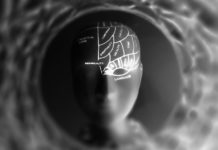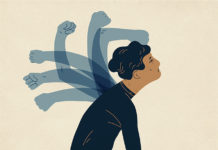Me, Allen Frances, and Climbing Out of a Pigeonhole
Four weeks ago, after I wrote a blog about a study that concluded there was no good evidence that antipsychotics improved long-term outcomes for people diagnosed with schizophrenia, I was cc’d on an email that had been sent to a number of “thought leaders” about what I had written. At least as I read the email, it put me into the usual pigeonhole for critics of psychiatric drugs: I apparently was globally “against” medications, and I had displayed a type of simplistic “categorical” thinking. All of this led to my having an email exchange with Allen Frances, and his laying out, in his opinion, the considerable "collateral damage" my writings had done.
Towards a Healthcare Magna Carta, Part One
The area of politics that counts most for most of us is healthcare. Big Healthcare is now the biggest business in the United States and in the Western World. We desperately need a new compact between we the people and those who govern our healthcare – or at least a new compact between the doctors who make money for pharma by putting pills in our mouths and the pharmas of this world. Instead, we are told that to question the judgments of the scientific literature is to engage in an irrational War on Science itself.
On Making Non Sense
I have lost interest in making sense. Insofar as anti-stigma entails a reassertion of my apparently forgotten humanity via the retelling of some personal narrative in which I generalize my unique experiences toward some universal wisdom, I have lost interest in the reduction of stigma. I would much prefer it if you didn’t need me to be comprehensible.
The Taint of Eugenics In NIMH-Funded Research Today
Recently, Thomas Insel, director of the National Institute of Mental Health, identified the “NIMH’s Top 10 Research Advances of 2011.” He wrote: “This has been a year of exciting discoveries and scientific progress . . . Here are 10 breakthroughs and events of 2011 that are changing the landscape of mental health research.”
Psychiatry Bashing
The more acutely and tellingly psychiatry is criticized, the more adamantly it defends its concepts and practices. But it seldom addresses the actual criticisms, relying instead on spin and on the endless regurgitation of the same tired old assertions: "we're real doctors; we treat real illnesses; our treatments are effective; and we deserve more respect." I have personally heard physicians make negative comments about psychiatry, but these have always been directed against the widely-acknowledged invalidity of its 'diagnoses,' and the general lack of science in the development and assessment of its 'treatments.'
Big Brother Is Watching: Children and Older Adults, Part I
If involuntary outpatient commitment, popularly known as Kendra’s Law, is to be ended in New York when it sunsets or expires in 2015, the reductive stereotypes used to characterize the individuals most likely to be affected, viz., those persons labeled with serious mental illnesses and caught up in the public mental health system, must be discredited and discarded.
Many Ears Make Light Listening
When we share our stories publicly, whether in speaking, writing, or another art form, we acknowledge we are part of something bigger. We are aware we aren't the only ones who have been abused or witnessed abuse, or who are scared to let go of our ancestral shame and fear. We are, rather, part of an entire generation, an entire society that is moving away from silence, blame and abuse. In sharing our stories, we instantly recover from a big hunk of loneliness, loneliness that might not be so easily resolved sitting in a room across from a professional, with a few non-offensive art pieces on the walls. We acknowledge that every single one of us who experiences physical or emotional symptoms is holding onto things for others, in our bodies, and together, word by word, we can break free.
Insane Medicine, Chapter 8: Treatment Traps and How to Get Out of Them (Part...
Sami Timimi provides a discussion of the ways medication may be helpful for some, and advice and information on discontinuing psychiatric drugs.
Who Will Guard the Guardians of Psychiatry?
The assertion that the so-called antidepressants are being over-prescribed implies that there is a correct and appropriate level of prescribing and that depression is a chronic illness (just like diabetes). It has been an integral part of psychiatry's message that although depression might have been triggered by an external event, it is essentially an illness residing within the person's neurochemistry. The issue is not whether people should or shouldn't take pills. The issue is psychiatry pushing these dangerous serotonin-disruptive chemicals on people, under the pretense that they have an illness.
Your Child’s Mind Space
Your child has a room or a shared room where he sleeps, reads, plays video games, and all the rest. But what about that other room where he really resides, the room that is his mind? He takes that room with him everywhere.
“They Need to be Held Accountable”
Psychiatrists at the University of Minnesota forced a young man into a profitable study of antipsychotic drugs over the objections of his mother, who desperately warned that his condition was deteriorating and that he was in danger of killing himself. On May 8, 2004, Mary Weiss' only son, Dan Markingson, committed suicide. A petition to the governor of Minnesota now asks for an investigation.
How the Medical Model Corrupted Mennonite Values
How to square the violent restraint and isolation of a vulnerable patient with the empowering, pacifist values of the hospital's founders?
Mortification of the Self: The Impact of Stigma on Identity
This is how the vicious cycle continues: the more one internalizes stigma, the more she will distance herself from her social surroundings; the more she distances herself, the more she will experience proliferation of symptoms; and the more symptoms are present, the more others will stigmatize and "force" the person into further isolation.
Beyond the Chemical Imbalance: Looking to the Past to Understand the Mental Health Crisis
Our bodies and minds evolved to thrive in an environment that is vastly different from the one in which a majority of us now live.
Why Do People Self-Harm, and How Can We Stop It?
The psychiatric treatments I underwent did nothing to help me come to terms with my troubled past. Self-harm did not serve me well either. We must re-learn what to expect from ourselves.
Duty to Warn – 14 Lies That Our Psychiatry Professors in Medical School Taught...
Revealing the false information provided about psychiatry should cause any thinking person, patient, thought-leader or politician to wonder: “how many otherwise normal or potentially curable people over the last half century of psych drug propaganda have actually been mis-labeled as mentally ill (and then mis-treated) and sent down the convoluted path of therapeutic misadventures – heading toward oblivion?”
Psychiatry and the Problem of the Medical Model – Part 1
The mental health industry has a lot to answer. The psychologization of everyday life has eroded the range of human experience seen as normal, disempowered people to manage their own life challenges, professionalized helping relationships and undermined the already decaying support structures through which people found meaning and connection, stigmatized people through psychiatric labeling, led to iatrogenic misery from harmful treatments and traumatized already vulnerable individuals through excessively coercive practices.
The Latest Gene Finding Claim in Psychiatry
On February 28th, the New York Times reported the latest psychiatric disorder “gene finding” claim in an article entitled “5 Disorders Share Genetic Risk Factors, Study Shows,” The Times reporter described a study that claimed to have identified shared genes associated with five psychiatric disorders: autism spectrum disorder, attention/deficit-hyperactivity disorder (ADHD), bipolar disorder, major depressive disorder, and schizophrenia. We have seen thousands of such claims in psychiatry since the 1960s, and we have also seen that these claims do not survive replication attempts.
Mad in Brasil: Part of a Global Effort to Create a New Paradigm of...
It is with great satisfaction and great hope that we are launching our Mad in Brasil website. Ours will be a collaborative effort. We look forward to being part of a global effort that will succeed in creating a new paradigm of care, one that will promote true robust recovery from psychiatric crises.
“Murphy Bill” Continues to Exclude Voices of Millions with Mental Health Conditions as It...
On November 4, the Health Subcommittee of the House Energy and Commerce (E&C) Committee marked up an amended version of the Helping Families in Mental Health Crisis Act of 2015 (H.R. 2646), introduced by Rep. Tim Murphy (R-PA) and Rep. Eddie Bernice Johnson (D-TX). However, the bill still does not reflect the voices or meet the needs of millions of Americans with lived experience of mental health conditions because the E&C Health Subcommittee failed to incorporate our recommendations.
Open Letter to Family Doctors and Mental Health Practitioners From an Average Kid Acting...
Hey Doc; I was wondering if before you see me the next time and tell my parents that I still need to be medicated for ADHD, you might consider a few things about me that you might not know. You see as a kid who can barely pick out an outfit that matches, make my bed, or wake up not hoping it's Saturday, I kind of have an active imagination. Like nearly all of my friends, I hate taking baths and I like to daydream. And when I daydream, I seem to not pay attention to what others are talking about. I kind of get lost in my own little world where rainbows do lead to pots of gold, leprechauns are real, life often feels like my favorite video game, and fart jokes never get old.
The Making of “Guilty Except for Insanity: Maddening Journeys Through an Asylum”
Before entering the field of psychology in the 1970s, I worked as a psychiatric nurse, gravitating to the community mental health movement, and then to anti-psychiatry politics. As a nurse at a psychiatric hospital in Santa Monica, also involved in union organizing and direct action politics with a feminist health collective, I was drawn to the radical wing of community mental health. Decades later, in producing a documentary film on the stories of people who entered the state psychiatric hospital in Oregon under the insanity plea, I had the chance to look back on that era through the lens of a fiction film that had made this hospital so famous.
The Upcoming MDMA Research Will Transform Mental Health Care
If MDMA can effectively treat and perhaps even cure PTSD it will create clear documentation that the core premises of the chemical imbalance theory are dead wrong. It is ironic and only fitting that a chemical molecule will finally bury the chemical imbalance theory and allow us to move on.
Using Formulation to Change Team Cultures
I am returning to the subject of psychological formulation after rather a lengthy gap, during which controversy about the forthcoming 5th edition of DSM has continued to grow – sign the petition ‘Stop the Insanity’ at www.dsm5response.com if you share others’ concerns about the creeping medicalisation of everyday life and the risks that it poses.
Psychiatry as a Mixed Blessing
In the late 70’s, before the invention of CT scanners or MRI scanners, I practiced emergency medicine. Without these sophisticated tools, I had to look at a patient and make a decision about whether or not they appeared ill or in distress. A doctor had to examine the patient; smell the patient, touch the patient, talk to the patient; this was crucial to the decision making process of diagnosis and treatment. With that sort of background, why do my observations and opinions as a psychiatrist somehow no longer matter?


















